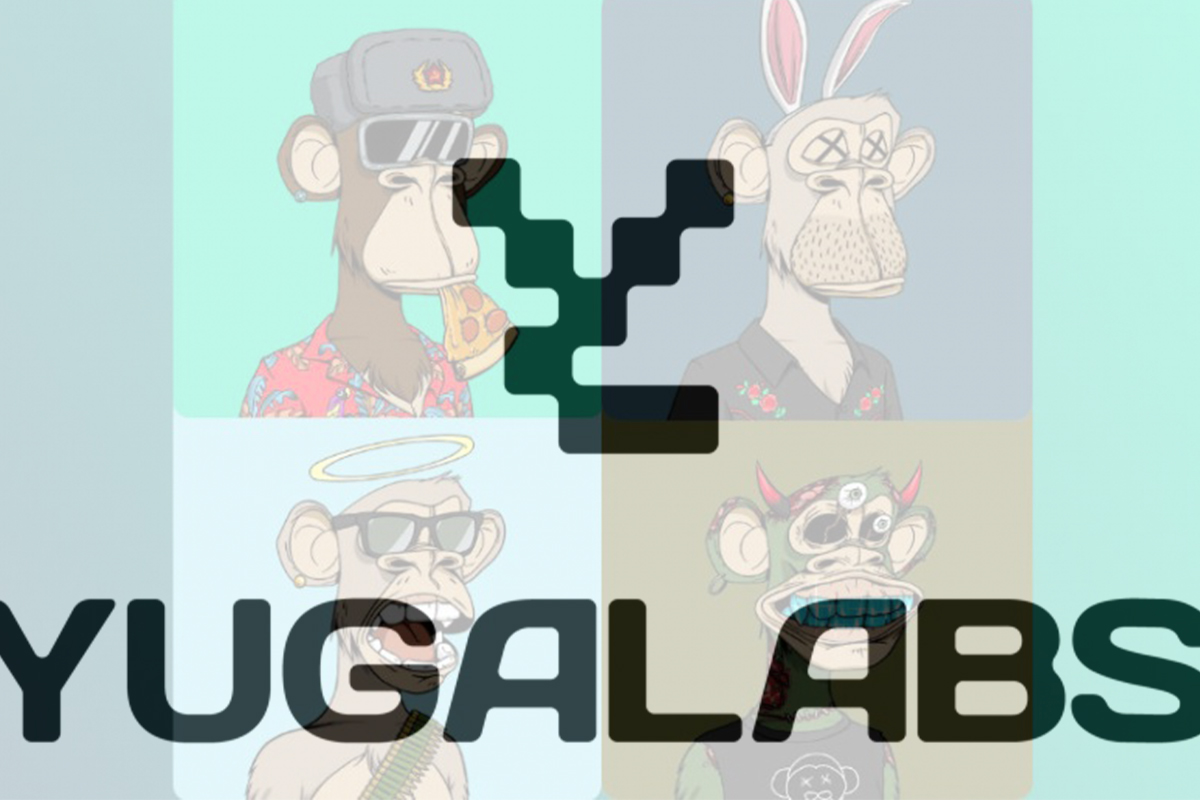The individuals behind the wildly popular Bored Apes, Mutant Apes, and Bored Ape Yacht Club had succeeded in remaining anonymous even as the valuation of their parent company, Yuga Labs, reached a valuation of $4billion.
For many, anonymity is at the heart of the cryptocurrency project, but now the true identities of the mysterious founders have been revealed. So, who are the founders of Yuga Labs?
Who founded Yuga Labs?
Until February this year, when a Buzzfeed investigation revealed their real names, the founders of Yuga Labs were known only as Gargamel and Gordon Goner.
In interviews, conducted under their pseudonyms, the pair had revealed that they originally met while growing up in Florida.
With more literary aspirations than coding skills, both initially undertook master’s degrees in creative writing. While Gargamel graduated, Goner dropped out due to unspecified health reasons.
Having bought some Bitcoin and Eth in 2017 the pair soon saw the money-making potential of crypto and recruited two computer scientist friends, known until recently as “No Sass” and “Emperor Tomato Ketchup”, to mint the first series of Bored Ape NFTs.
Until now, not much more was known about the two, but now it has been revealed that Gargamel and Gordon Goner are, in fact, Greg Solano and Wylie Aronow.
Follow 24/7 Crypto on Twitter for the latest news and developments as they happen
Greg Solano
Before founding Yuga Labs, Greg Solano, aka Gargamel, was better known for his literary pursuits.
In 2019 Solano co-published a book on World of Warcraft, a popular MMORPG, with one of the game’s designers.
Beyond this, his name appears as editor or contributor to several smaller literary publications.
In previous interviews, Solano has also said he was the first of the pair to invest in crypto. While bedridden with an unknown illness he told Aronow: “I’m throwing some money into some stupid sh*t here. You wanna get in this with me?”
Sign up to get our weekly cryptocurrency, NFT and metaverse news round-ups direct to your inbox
Wylie Aronow
Little more is known about Aronow than his counterpart Solano. A self-confessed high-school drop-out with a gambling problem, Aronow never held a “real job” before founding Yuga Labs.
After apparently living in Chicago for some time and getting featured in a ‘reader of the week’ section of the Chicago Tribune, Aronow encountered legal troubles.
In May 2021 Aronow was called to arbitration by a crypto company called Bitmex. In 2018, Aronow bought the domain bitmex.guru in a move that Bitmex claimed was aimed to trick people looking for Bitmex’s legitimate site.
Aronow never appeared at the arbitration and the domain defaulted to Bitmex.
No Sass and Emperor Tomato Ketchup
Following the release of the founders’ identities, Solano and Aronow both tweeted pictures of themselves, acknowledging that their identities had been revealed and claiming to have been ‘doxed’.
The previously unknown engineers behind the Bored Ape Yacht Club, No Sass and Emperor Tomato Ketchup, followed suit; tweeting pictures of themselves and giving their first names.
Combined with publicly available forms submitted to the Security and Exchange Commission on March 22, the pair’s full names have since become known.
No Sass’s real name is Zeshan Ali, and Emperor Tomato Ketchup is Karem Atalay.
What is Yuga Labs?
Yuga Labs is the parent company behind the Bored Ape series and the Bored Ape Yacht Club.
Officially launching in April 2021, the company released 10,000 NFTs of algorithmically generated ape pictures. Each picture was comprised of several components, such as different hats or mouth options, each with a different probability of occurring, making each ape provably rare.
The initial collection sold out within 12 hours, with each NFT selling for 0.08Eth ($190 at the time), and Yuga Labs raised around $2million.
Since then, the price of Bored Ape NFTs has risen exponentially. A recent Sotheby’s auction sold a bundle of 101 Bored Apes for $26million, massively exceeding the expected $19million sale point.
Yuga Lab’s principal selling point is that the Bored Ape NFT also functions as a ‘membership card’ for an exclusive club called the Bored Ape Yacht Club (BAYC). BAYC members gain access to exclusive content and the chance to get free NFTs in future releases.
What are Bored Ape Kennel Club and Mutant Ape Yacht Club?
The two most significant releases that became available for BAYC members were access to the Bored Ape Kennel Club and Mutant Ape Yacht Club.
In June 2021 Yuga Labs announced that every member of the BAYC would receive a unique dog NFT, as a companion for their Ape.
Members had a limited time window to adopt their pet, which now resell for a minimum of 7Eth. Additionally, Yuga Labs announced that a 2.5 per cent royalty on reselling for the first six weeks after release would be taken to donate to animal charities. Ultimately raising over $1million.
The Mutant Ape Yacht Club was a similar initiative. Yuga Labs released 20,000 variant NFTs in August 2021.
Intended as a lower level of membership 10,000 were released for sale to the public while the other 10,000 were created by airdropping ‘mutant serum’ to BAYC members.
This serum could be used, by burning the token, to ‘evolve’ an existing ape; creating a new ape with different characteristics.
Why are BAYC, MAYC, and BAKC so popular?
A reason for the success of Yuga Labs’ products is utility. Often a buzzword for NFT projects, utility refers to an NFT’s capacity to continue generating value and be used for further projects.
BAYC has not only granted members access to the MAYC and BAKC but also grants owners full usage rights to their NFTs.
Unlike some other NFT projects, BAYC members can freely use and monetise their apes, leading to everything from original artwork to a BAYC wine.
This utility combined with the experience of joining an exclusive club of like-minded investors is a major draw for many investors.
